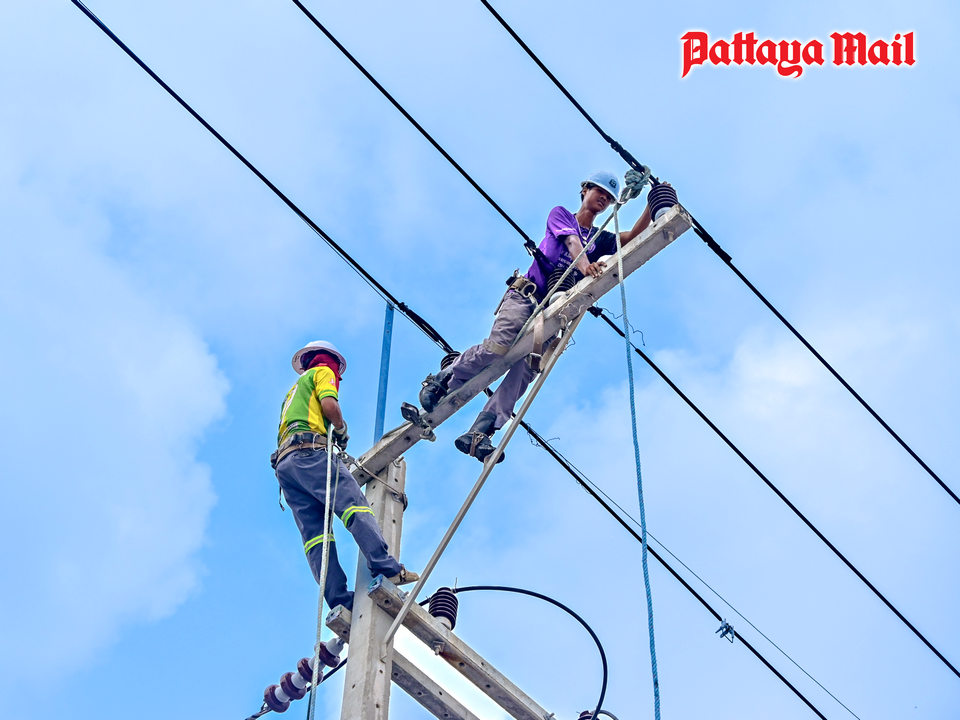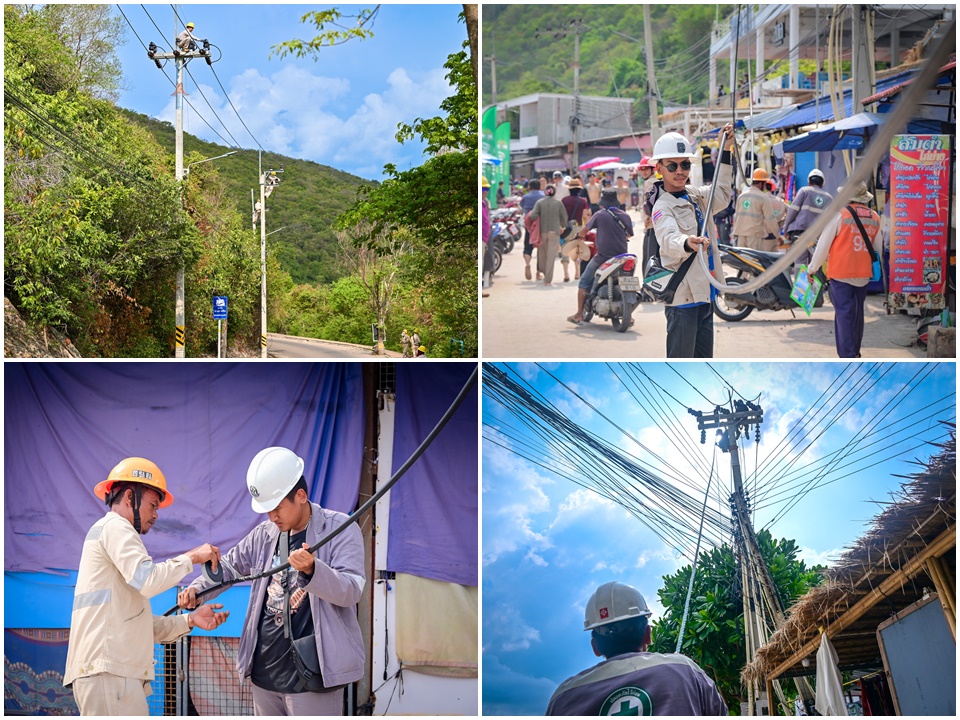
PATTAYA, Thailand – The Provincial Electricity Authority (PEA) launched a project on Koh Larn Island aimed at enhancing the distribution system’s capabilities and maintenance. This initiative also aims to reduce incessant power disruptions, crucial for sustaining the island’s burgeoning tourism industry.
Koh Larn Island attracts an average of 5,000 to 7,000 tourists daily, resulting in an annual increase in electricity demand. To address this, Somsak Samranrat, Director of Operations and Maintenance at PEA Region 2 Central Chonburi Province, organised the “Big Patrolling and Cleansing for Strong Grid” event at Tawan Beach, on Koh Larn Island on March 27. The event witnessed the participation of alumni associations of technicians from PEA Region 2 and former students from the Electrical Power Distribution Vocational School District 2.

Detcha Khawdara, Manager of Electrical Power Distribution in Koh Chang District, stated that electricity is currently supplied via an 8-kilometer underwater cable circuit from the South Pattaya substation, with an average load of approximately 4.1 megawatts. However, several distribution points require upgrading, particularly before the high season in April. Consequently, PEA conducted inspections of the distribution system and transmission lines to identify abnormalities and carry out preventive maintenance, ensuring reliable electricity supply to businesses, industries, residents, and tourists.
During the event, various activities were conducted to bolster the electricity distribution system’s resilience. These included the installation of animal protection equipment at five points, partial discharge rectification at five points, rectification of various faults at six points, replacement of tie wires with cover tie wires at 44 points, and repair of high-voltage lines at eight points.








